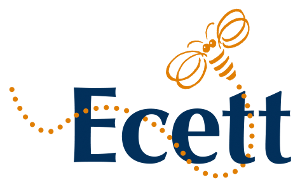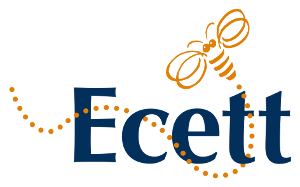Nicolas Mullier from Ecole de la Neuville, France – After internship at Christiania, Danemark
From an educational point of view, this trip has enabled us to make enormous progress. We are now able to identify specific teaching objectives, both in terms of upcoming meetings and our students’ expectations (both personal and linked to the training programme).
We have gained access to places in Christiania that are not open to the general public. This was made possible by our contacts in Paris (notably Yann Datassent). The discovery of these places was of course accompanied by chance encounters. We were able to discuss our study trip plans. And generally speaking, we’ve had a good response to it. Although nothing has actually been concluded yet.
We are also about to conclude a meeting with the local police. Thanks to our interpreter. We had no idea of this possibility before we left.
Laura Demarthe from Relais Social Urbain housing first Charleroi, Belgium- After internship at “Chez Soi d’Abord”, France
The differences and similarities were very beneficial for us because it allowed us to “reassure” ourselves about our practice but also to think about new ways of operating within the team (e.g. compulsory pairing during home visits) and working with our beneficiaries (e.g. setting up funds in order to propose activities outside the framework, daring to be more directive at certain times, making them more responsible for their accommodation,…). We are going to apply some of their practices (e.g. doing out-of-the-box activities with our beneficiaries)
Sarah Douxfils from Housing First Namur, Belgium- After Internship at ABEJ Solidarité, France
The whole team rotates during home visits, but their team is divided into 4 geographical zones. In addition, they have a certain amount of money earmarked for the person. This money is spent according to the person’s needs and expectations. They take the liberty of going for a coffee with the person, going to the cinema, playing sport… This is a practice that we don’t use ourselves, but we think it’s essential to create a link with the person at less formal times.
As far as the work philosophy is concerned, we have noticed that the workers are sometimes prescriptive in their approach and refer back to the people who do not meet the basic criteria (cleanliness of the accommodation, payment of rent and dealing with neighbourhood disputes). It is important to specify that these workers (the social workers from the institution responsible for monitoring housing) have sublet accommodation and are therefore responsible for the accommodation and any damage to it. In addition, they are responsible for receiving money from the tenants, which they pay to the landlord. This therefore implies another responsibility and a need for accommodation that meets these various criteria. Although we don’t have any sublet accommodation (with the exception of one flat), their approach seems interesting because it gives the person a sense of responsibility. What’s more, they sometimes enter the accommodation when they are concerned about the person’s health. So the situation has to be serious for them to enter the home. They leave a piece of paper and mark the door with a sticker to see if anyone has passed through. These are small strategies that I think are worth putting back into practice here.
Maryline Waterkeyn from ASBL Phénix projet Salamandre/ Projet Housing First Namur, Belgium- After internship at Abej Solidarité, France
The discussions during the meetings were innovative, as were the interactions between the various social workers, who are much more numerous than our team.
We were received by the night shelter coordinator. For me, this visit was comforting in the idea of providing a more humane welcome to people who don’t fit into the “norms” of night shelters.
Sevan Delfosse from Relais Santé de Namur, Belgium – After internship at Samusocial de Paris, France
The course enabled us to compare our practices, develop our knowledge and skills and, above all, find out what is being done elsewhere in terms of support for people living in extreme poverty. We had the opportunity to discover a large part of the services offered by Samusocial to people living in extreme poverty. As a result, we were able to question our system and identify its shortcomings and achievements. These meetings gave rise to a number of ideas for reform within our service.
This course really did meet all our expectations and ECETT-Network’s primary objective, which is as follows: “ECETT’s courses enable the exchange of good practice by going elsewhere to see practitioners who do a job similar to yours, but in a slightly different way and in a different context”, was fully achieved!
Renaud de Backer from Relais social Urbain Namurois , Belgium- After internship at Abej Solidarite, France
Given the quality and richness of the course, the objectives were clearly achieved. As coordinator of the team, this stay fully fulfilled my ambitions to develop more tools and improve practices with regard to the public we welcome. In addition to the work methodology itself, I would also like to highlight the strengthened team cohesion.
I am fully satisfied with the organised trip for the following reasons:
– I felt more confident about my own practices;
– development of new tools
– strengthened team cohesion;
– partnerships created.
Gregory Breynart from Asbl Destination Dinant, Belgium – After internship at Kethea, Greece
The objectives set for the work with families were achieved beyond expectations. We were able to learn about an approach that was very different from what exists in our department.
From then on, all sorts of avenues for work and reflection will emerge from the course.
Overall, and in parallel with the objectives, this placement has above all enabled us to move away from our practices and institutional foundations to consider a different approach to the public and the families supported at Destination.
The meetings with Strofi also provided us with a lot of food for thought and helped us to question our thinking, particularly in terms of communication and volunteering.
The construction of a support project for minors is partly based on the experience encountered within Strofi.
The team and the board of directors are questioning the association’s communication strategies.
Valérie Albertuccio from HELHA, Belgium – École sociale de Charleroi & Cardijn, Belgium- After internship at Christiania, Danemark
In our opinion, the students’ delight (and that’s the right word) with the educational offer of the trip confirms two hypotheses. Firstly, the travel pedagogy is a relevant training medium in social worker. Secondly: a training medium which is usually underestimated in our practice is the utopian experience (or at least the experience of enthusiasm and success). Indeed, discovering a positive reality rather than (yet another) social distress provides additional and indispensable added value to the trainer’s baggage.
Florence Kayaert from HELHA , Belgium- After internship at Christinia Copenhague, Danemark
For all the students who responded to the evaluation, it was an overwhelming experience. They were surprised, interested and delighted by the discoveries they made in terms of building their professional and personal identity.
Meeting professional and non-professional people involved in this alternative, utopian (they say) but very real life experience had a ‘re-boosting’ effect on our students. The experience of “something else is possible”, of a harsh but positive reality where the daily struggle in the name of life’s values and the refusal to resign and give up on them is the law, truly enchanted our students.
We never imagined we would get such positive feedback from our students.
The trip also helped to deconstruct our sometimes simplistic perceptions of our students.
It also taught us that the involvement of teachers (which was praised by the students) in developing ambitious and innovative projects is a real training aid.



